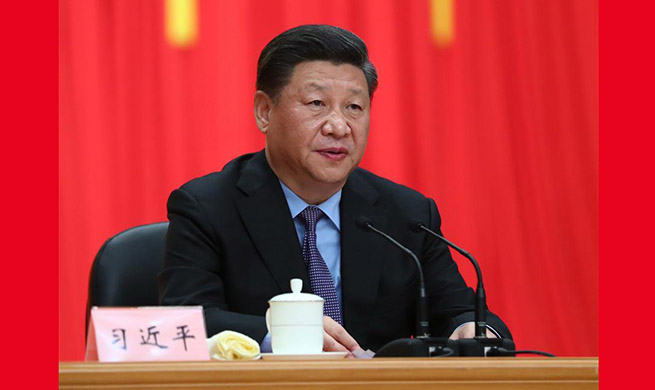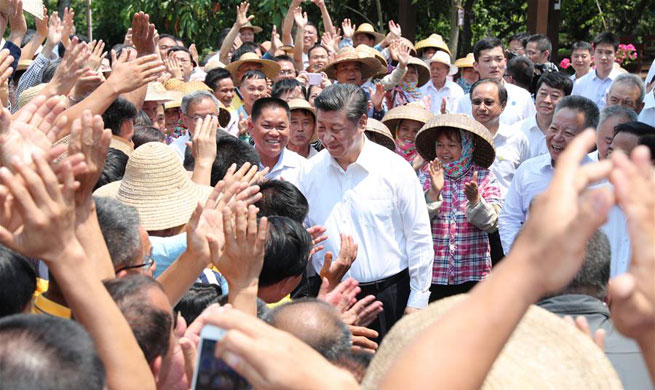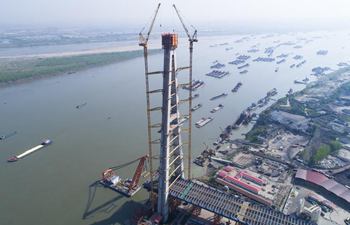by Xinhua writers Shooka Shemirani, Yang Chunxue
LIMA, April 13 (Xinhua) -- At a time when protectionism is on the rise, heads of state and government as well as CEOs from across the Americas made a case for knocking down trade barriers at a business forum here Friday.
Canadian Prime Minister Justin Trudeau was among the many prominent voices advocating free trade and integration at the CEO Summit of the Americas.
"The changing nature of the global economy requires more integration and more partnership, not less," Trudeau said. "The digital economy designates the whole world a marketplace. Countries that collaborate will lead the way together. For our people to get ahead, we need to remove trade barriers, integrate our supply chains, and invest in one another."
Mexican President Enrique Pena Nieto said Mexico does not believe in protectionism or isolationism while Panama's Minister of Economy and Finance Dulcidio de la Guardia told Xinhua Panama regards trade as a key driver of development.
"Panama's comparative advantage is precisely to serve global trade, and we believe that free trade is the path to follow," the minister said. "The growth of global trade is important, so any measure that tends to restrict trade, we believe, is not in Panama's interest."
Industry leaders echoed the sentiment. Gustavo Grobocopatel, president of Argentine agricultural business group Los Grobo, said trade restrictions have caused trade wars. "So you have to be tough on protectionism."
"That doesn't mean a country shouldn't have smart policies to integrate itself into the world, but always within the framework of taking measures that facilitate trade and do not harm it," he added.
Mauricio Castillo, CCO of Sigdo Koppers, a leading Chilean conglomerate providing services and products for mining and industry, said the China-proposed Belt and Road Initiative will benefit Latin America.
Proposed in 2013, the initiative aims to achieve policy, infrastructure, trade, financial and people-to-people connectivity along and beyond the ancient Silk Road trade routes, building a new platform for international cooperation to create new drivers of growth.
"We believe that this initiative, which is tremendously ambitious, aims to benefit many countries through the trade that would take place, given the appropriate infrastructure," Castillo said.
"Latin America must take part in that initiative and take advantage of it, while China can benefit from having a large market (in Latin America) with resources. It's virtuous reciprocity," he said.

















